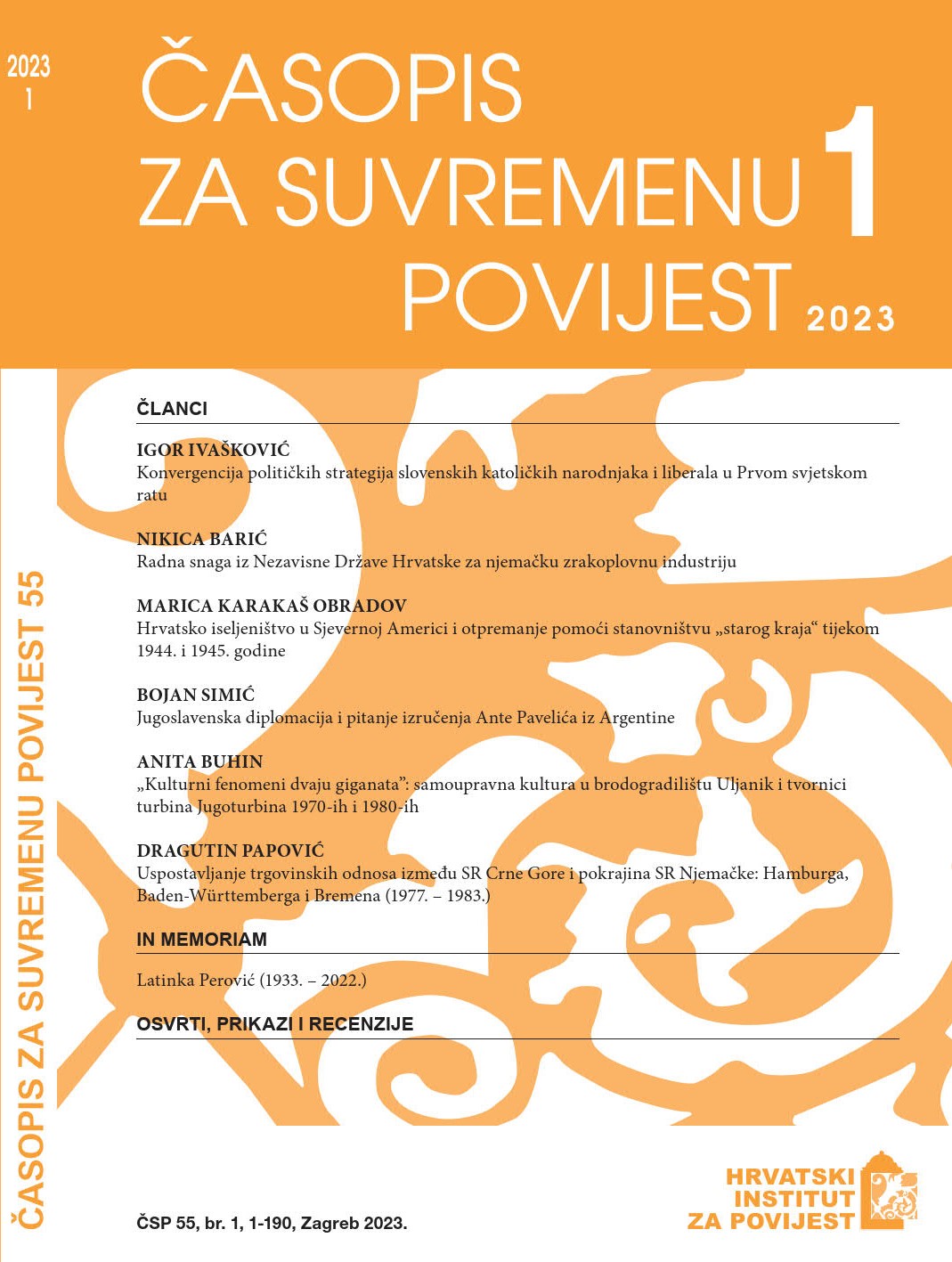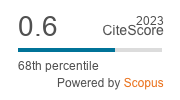The Convergence of the Political Strategies of Slovene Catholic Populists and Liberals in World War I
DOI:
https://doi.org/10.22586/csp.v55i1.23610Keywords:
World War I; Yugoslavia; Slovenes; Slovenian People's Party; National Progressive PartyAbstract
The author analyzes the views of Slovenian Catholic populist and liberal magazines regarding Slovenian and South Slavic statehood issues in the period from the assassination in Sarajevo in 1914 to the meeting in Zagreb in March 1918. At the beginning of the war, the Slovenian People's Party (SLS) took a strong anti-Serbian position and even called for military intervention in Serbia. At the same time, the party unanimously advocated the idea of a Slovene-Croatian state unit within the Habsburg Monarchy as the key political goal. Slovenian liberals, on the other hand, despite condemning the act of assassination, criticized the anti-Serbian demonstrations and emphasized the responsibility of Austro-Hungarian policy for the escalation of the war. As a result of wider macro-geopolitical events, foremost the increased probability of the Entente's victory, which implied the possibility of the implementation of the London Pact, as well as the use by Great German circles in Austria of the war against Serbia for a wider anti-(South) Slavic campaign in which every Slovenian and/or Croatian emancipatory aspiration was portrayed as an anti-state element, Slovenian Catholic populists changed their political direction. After realizing that even expressing the strongest pro-Austrian emotions and investing very great efforts in presenting the difference between the Slovenian-Croatian trialist vision and the Greater Serbian concept would not bear fruit, the SLS decided to change its strategy and to consolidate its own political legitimacy by attaining leading positions in the representative bodies of the Austro-Hungarian South Slavs. Since this required collaboration with Slovenian liberals and Austro-Hungarian Serbs, it also implied the acceptance of a broader South Slavic concept.
Downloads
Published
How to Cite
Issue
Section
License
Copyright (c) 2023 authors and journal

This work is licensed under a Creative Commons Attribution-NonCommercial 4.0 International License.
Copyright holders are the publisher Croatian Institute of History and the authors. Journal of Contemporary History is an Open Access journal. Users are allowed to read, download, copy, redistribute, print, search and link to material, and alter, transform, or build upon the material, or use them for any other lawful purpose as long as they attribute the source in an appropriate manner according to the Creative Commons licence CC BY-NC. The papers published in Journal of Contemporary History can be deposited and self-archived in the institutional and thematic repositories providing the link to the journal's web pages and HRČAK. Journal does not charge article processing charges (APC). The editors assume no responsibility for statements of fact or opinion made by contributors.




